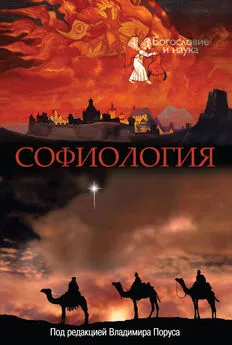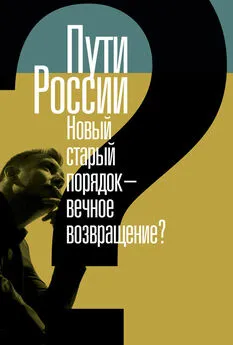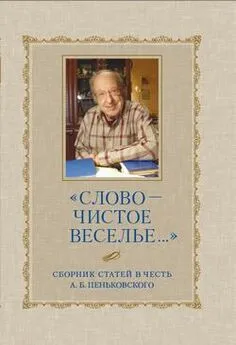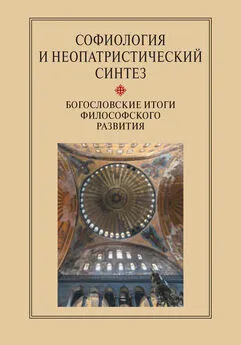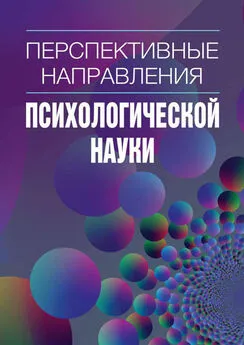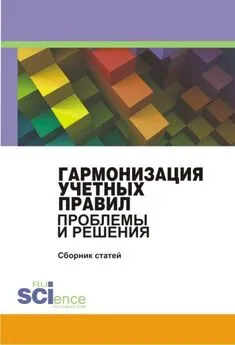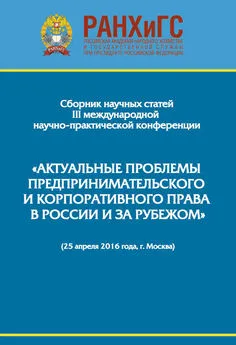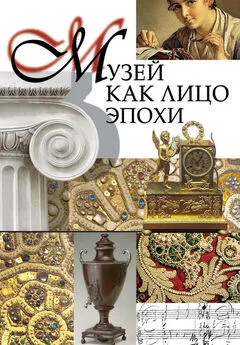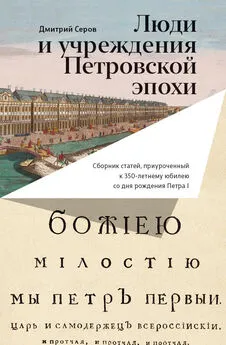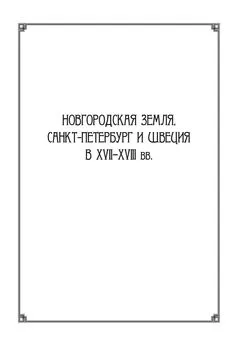Сборник статей - Софиология
- Название:Софиология
- Автор:
- Жанр:
- Издательство:Литагент «ББИ»bb9e3255-c253-11e4-a494-0025905a0812
- Год:2010
- Город:Москва
- ISBN:978-5-89647-221-6
- Рейтинг:
- Избранное:Добавить в избранное
-
Отзывы:
-
Ваша оценка:
Сборник статей - Софиология краткое содержание
Русская софиология конца XIX – начала XX вв. – самобытное и примечательное явление мировой культуры. Вокруг него продолжаются споры, острота которых свидетельствует о непреходящей актуальности поднятых русскими софиологами проблем, важнейшие из которых – способность христианской цивилизации ответить на вызовы времени, необходимость единения человечества перед лицом нарастающих глобальных кризисов, обновление веры, поиски новой рациональности как культурной ценности, разумных оснований диалога между западным и восточным христианством, между христианством и другими мировыми и национальными религиями, между различными культурами.
Настоящий сборник составлен из докладов, представленных на международной конференции «Русская софиология в европейской культуре» (Звенигород, 1–5 октября 2008 г.), организованной Библейско-богословским институтом св. ап. Андрея и Институтом восточных церквей (Регенсбург) при поддержке Католического комитета по культурному сотрудничеству (Рим, Италия).
Софиология - читать онлайн бесплатно ознакомительный отрывок
Интервал:
Закладка:
Max Weber made the Tolstoian vision of Orthodox love as a mystical and brotherly love into the Ideal type of the Christian ethic of brotherliness,
This ethic resembles the world denying Puritan Christian ethic that has the same distracted brotherly love as an ascetic task and inner-worldly daily praxis at its center. This brotherly Christian ethic according to Weber finds its source in a denial of the world that is characteristic for salvation religions, that is a-cosmic and intrinsically a-social. [520]Tolstoi′s extremely world-denying individual ascetic praxis negated the value of everything inner-worldly. Tolstoi′s extremely negative evaluation and rejection of the inner-worldly realm differs from Puritanism with its more diverse valuation of this world, and from Orthodoxy that usually recognizes the sinfulness of the world, but did not impose any abstention from or hate for the world that God created.
2. b. Bulgakov′s sophiology as a continuation of Solov’ëv′s project – with some important adaptations
Sergei Bulgakov largely followed Solov’ëv in his critical treatment of Tolstoi′s concept of Christian love as duty and considered it as too individualistic, abstract and one-sided. Like Solov’ëv, Bulgakov never preached abstention from erotic love, nor celibacy between husband and wife. Bulgakov however never gave human love as eros the central position it had in Solov’ëv′s concept of salvation and All-Unity. For Bulgakov, not human eros or erotic love, but Divine love is central. Divine love – or Sophia
– is primordial and makes human love and life possible and meaningful. Although salvation can only be given by the Grace of God, humankind is not supposed to wait for it passively. Human work is essential for the salvation of humanity and the world. [521]
If the human individual is incomplete or imperfect, according to Bulgakov this is a result of the primordial sin. The erotic union of a male and a female does not restore human nature to its condition before the fall. Humanity does not become perfect or complete through eros or polovaia love. According to Bulgakov, only the daily work of every human individual in podvizhnichestvo [522] can make humanity complete as Divine-humanity in sobornost′.
Bulgakov replaced Solov’ëv′s concept of love as the intermediary between humanity and God with the concept of work. Bulgakov interpreted work in its broadest sense as consumption and production, and essentially as the transformation of nature into culture, or the humanization of nature. [523]Whereas for Solov′ev sobornost′ signified the ideal organization of the Orthodox Church community, for Bulgakov sobornost′ more and more became the characteristic of Orthodox social organization. It is the direct telos of Orthodox podvizhnichestvo which expresses itself as a daily methodic work – an ascetic praxis that is a calling ( poslushanie ) and a service to God for every Orthodox believer. Bulgakov′s concept of work as podvizhnichestvo is consciously close to the Puritan innerweltliche Askese that Weber recognized in the ′spirit of Capitalism′, which had a definite – although unintended – economical or inner-worldly result. [524]
Throughout his personal intellectual development from religious philosopher to Orthodox theologian, Bulgakov kept using Sophia as icon of the presence or energies of the Christian Trinitarian God in the world. [525]Bulgakov developed his sophiology in Philosophy of Economy (1912) first as Christian sociology, or as a study of the presence of God′s love or Sophia in the every day world. In Svet Nevechernii (1917) Bulgakov developed sophiology in a philosophical way, as to its gnoseology, ontology and historiosophy. [526]Sophiology, however, is also an integral part of Orthodox theology or of bogoslovie. Bulgakov developed sophiology as theology in his two theological trilogies. [527]
Not sexual intercourse between humans as a kind of inter-communion of tvarnost′ (created-ness), but divine embodiment of tvar′, or the communion of created-ness and uncreated-ness in Godmanhood, was Bulgakov′s central point of attention in these writings. The ultimate icons of this communion are the divine Incarnation in the God-man, Christ, and at Pentecost in the Christian Church, as embodied by the twelve apostles of Christ. These are icons of Godmanhood. Sobornost′ for Bulgakov is the quality of this Divine-human unity in the Church that is the body of Christ on earth. If the double task of the ′humanization of nature′ and the ′churchification of society′ is accomplished through Christian work as podvlzhnlchestvo, sobornost′ would become the characteristic of the organization of Orthodox society. [528]
Russian Orthodox Church hierarchy never officially accepted sophiology as its official social teaching. In 1928, the Russian Orthodox Church of the Karlovtsy jurisdiction accused Bulgakov of heresy because of his sophiology In 1937, the Church court of the Moscow Patriarchate exonerated his case. [529]But even in his own circle of the St. Serge Orthodox Theological Institute in Paris, of which Bulgakov was co-founder and dean, the Spor o Sofll or dispute on Sophia clearly showed the resistance against sophiology Despite his efforts, Bulgakov did not succeed to remove Sophia from her Gnostic roots, or to associate her closer to the Orthodox patristic tradition. The suspicion of Sophia being the fourth and female hypostasis of God remained predominant in lay and official Orthodox circles.
For Bulgakov, Sophia is the unique object of sophiology as Christian sociology, philosophy and theology. As the nature of God, Sophia is the nature of the relation of God to the world that expresses itself as Divine love for his creation. At the same time, Sophia is Jacob′s ladder for humanity – or the possibility of a relation with God, and of cataphatlc or positive theology The nature of God and its relation to the world is manifest to humankind as divine Wisdom, Love, Providence, Beauty, Glory and Grace, to enumerate some of the positive qualifications that are characteristic of this Divine-human relation for Bulgakov.
Sophiology as positive theology is in fact the opposite of the traditional apophatlc or negative theology in Orthodox tradition that concentrated on bogoslavle (the glorification of God) and bogosluzhenle (the liturgical service). In his trilogies, Bulgakov wanted to develop or disclose the dogma of the Trinity that was established at the Council of Chalcedon to adapt it to the modern world, and turned to dogmatic theology One could say that Bulgakov changed – slovle or – slavle into – logy, and in this change seemed to elevate philosophy and science above the glorification of God in liturgical service.
Furthermore, Bulgakov′s sophiology kept consciously close to secular sociology of the Weberian kind. Bulgakov classified secular sociology as the ′phenomenology of economy′ [530]with economy being one of the expressions of the relation between God and the world. Sophiology, in contradistinction to sociology however, had to be capable to discern between good and evil, true or false appearances of God in the world, or between the active presence of God or of Antichrist in the world. [531]Sophiology is therefore Christian sociology and is not only a phenomenology of the ′is,′ but also has to give an account of the ′ought.′ Sophiology is not only sociology, but also social ethics and social theology. [532]
The unorthodoxy of the icon of Sophia remained an obstacle however for the reception of sophiology in official Russian Orthodoxy. For Bulgakov, Sophia was not a hypostasis of God, but an icon of his nature for humanity, and an instrument of hermeneutics for the interpretation of God′s presence in the modern world. [533]Sophia is not only instrumental for human reason as object of human contemplation – the vision of God (theo-reia), but also instrumental for human practical reason that tries to build a better world. Sophia is the key for understanding the relation of humanity to God and of God to humanity, because her world-immanent being reflects her world-transcendent being.
Sophia, on the other hand, is never only an instrument of hermeneutics, or of social ethics, but she is also an active and divine principle. Humanity not only strives up to God, God also comes down to elevate humanity. From an exclusively immanent, e.g. a secular sociological standpoint such as Max Weber′s, it is impossible to decide about true and false phenomena of God′s presence in the world, or to choose between Christ and Anti-Christ. This problem puts us right in the middle of Solov’ëv′s last work Tri razgovora [534] that concluded it is impossible to decide on the question of just wars and the nature of evil from an immanent or exclusively inner-worldly standpoint.
According to Tri razgovora only true belief makes it possible to discern between Christ and Antichrist. The ability to discriminate between good and evil in the world that is given in Sophia is of the utmost importance for sophiology as the study of the progress of Christian humanity in its double task to relate the world to God in a humanization of nature, and to relate humanity to God in a deification through the Church that is Divine humanity or Sophia in actu. [535]
The Osnovy (foundations or principles) of the social concept of the Russian Orthodox Church are in the plural. This seems to imply the Osnovy depart from various principles and not from the one principle of Sophia
– The Wisdom of God. Chapter I on the basic theological provisions of the Osnovy starts with giving several definitions of the Church. The unifying principle of the Osnovy, therefore, seems to be the Church itself that is at once the universal Church, and the historical Russian Orthodox Church as an expression of the universal Church in this world. The Osnovy depart from the position of the Russian Orthodox Church and its mission in the world and try to determine its inner-worldly relations.
The Church is the assembly of believers in Christ (par 1.1), but also a divine-human organism (1.2, bogochelovecheskll organlzm) and the Body of Christ in this world. The Church is a ′unity of the new humanity′ in Christ. The Osnovy here quote Slavophile Orthodox philosopher A.S. Khomiakov who used the term sobornala cerkov′ in the sense of ′conciliar church′. According to the Osnovy, the Church shares Christ′s mission to save the world, but can only do this through sobornoe sluzhenle or conciliar service
(1.2). In the official document Baslc Teachlng of Russlan Orthodox Church on Human Dlgnlty, Freedom and Rlghts (2008), the substantive sobornost′ is used to denote the Orthodox tradition that ′wants to keep the unity of the society on the basis of the eternal ethical values.′ Here the ROC seems to subscribe to the interpretation of sobornost′ as the principle of cohesion and organization of Orthodox society.
The Osnovy also use the formula ′continuous service (sluzhenle) to God and neighbor′ to describe the life in the Church of every Christian. This formula at first sight seems close to Tolstoi′s ′love of God and neighbor′. In contradistinction with Tolstoi, the sluzhenle of the Osnovy is not individual, but conciliar action. This continuous conciliar service of God and neighbor is closer to Bulgakov′s concept of podvlzhnlchestvo than to Tolstoi′s asceticism. Furthermore, like Bulgakov, the Osnovy explicitly do not admit ′to shun the surrounding world in a Manichean way,′ as Tolstoi preached. [536]The Church on the contrary calls all Christians to participate in the world. This participation in the world ′should be based on the awareness that the world, socium and state are objects of God′s love.′
Читать дальшеИнтервал:
Закладка:
